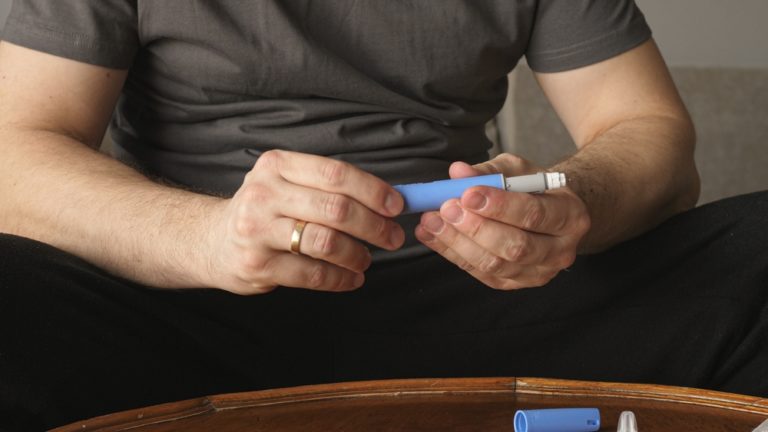More than half of Canadian adults use at least one prescription drug a month. Some take two or three, and this amount increases with age.
If you are feeling sick, the last thing you want to worry about is whether or not you will be able to buy the medication that your doctor has prescribed. You don’t want the one thing that will help you feel better to be out of reach.
British Columbia’s Fair PharmaCare aims to help families afford the medication they need so that no one faces difficult choices when they are at their worst.
Due to the high cost of medicine, more than one in five Canadians have resorted to skipping doses, cutting their pills, or just choosing not to take their prescribed medicine. The impact of this on one’s health can be severe.
Keep reading to learn how to benefit from the Fair Pharmacare program in BC.
What Is Fair Pharmacare?
The United Nations sees fair access to medicines as a human right and a matter of human dignity.
The government of British Columbia implemented Fair Pharmacare in 2003 to improve access to medicines. When more people have access to the medications they need, they are able to live a healthier life.
British Columbia has 12 different PharmaCare plans that help residents of the province with some of the costs of their medicine and medical supplies.
Fair PharmaCare is the largest of these PharmaCare plans. It is based on your income which determines who most needs assistance with paying for their drugs. This means that the less you earn, the more help you will receive to pay for your prescription medication.
How Does Fair PharmaCare BC Work?
Fair Pharmacare is free to join for all British Columbians. When you first join, Fair PharmaCare will calculate your level of coverage and deductible. This is done based on your tax return and income from two years ago.
In the future, your coverage will be re-calculated on January 1st of every year, based on your most recent tax return. For example, if you apply for Fair PharmaCare in 2022, your coverage will be calculated according to your 2020 tax return.
To calculate your coverage level, Fair PharmaCare looks at the net income on your tax return. If you are married, then this amount will include your spouse’s income.
The British Columbia government has a calculator to help you work out an estimate of the financial assistance that will be available to you.
As an example, if your net income is less than $13,700, your prescription drug costs will be covered in full. Once you earn more than $30,000 annually, you will have to meet a family deductible to cover 70 percent of your costs.
Once you meet the family maximum, Fair PharmaCare will pay 100 percent of your prescription drug costs.
Who Can Sign Up for Fair Pharmacare?
Anyone who is a resident of British Columbia is eligible for Fair PharmaCare if they have the public health insurance known as Medical Services Plan (MSP).
All you need to do to become eligible is agree to PharmaCare checking on your income with the Canada Revenue Agency (CRA).
As soon as you register, which you can do via telephone or online, you will receive your temporary coverage. You will then receive a consent form from PharmaCare to fill in and return. This signed document will allow PharmaCare to check your income with the CRA.
You will then receive a confirmation letter with information about the coverage granted to you. This will be adjusted every year according to your latest tax return.
If for any reason, you fail to return the consent form, your family deductible will be set at $10,000.
Fair Pharmacare is also for families. Couples who are married, common-law, or have dependent children, count as a family. This can also include a single person with children.
A dependent child is either under the age of 19 or is a full-time student between the ages of 19 and 24. They should be on one of their parent’s MSP plan. Students from other provinces or countries are also eligible once they have registered for MSP in British Columbia.
MSP allows you to access a wide variety of clinical services.
To be considered dependent, your child should not be married. If your child is over 19 or only studying part-time, they can register for their own Fair PharmaCare account.
What Coverage Can You Expect?
Did you know that drug prices in Canada are the third-highest among developed countries? In fact, Canadians spend more on prescription medications every year. In 2017, Canadians spent almost $40 billion on prescription drugs.
So your biggest question is probably what exactly is covered by Fair PharmaCare BC? How much will you have to pay, and will you get the medicines you need?
1) Diabetes Supplies
PharmaCare will cover your insulin up to its regular retail price but will not cover the dispensing fees. It will also cover specific insulin pumps, the supplies needed for insulin pumps, needles, and syringes.
Fair PharmaCare will also cover blood glucose strips, with an annual maximum of strips allowed, depending on your specific treatment requirements. A continuous glucose monitor will require special permission.
2) Prescription Drugs
PharmaCare covers most medications that are prescribed by a doctor, dentist, or nurse practitioner who practices in British Columbia.
This does not include drugs required to treat cancer, transplants, kidney dialysis, and some vaccines, as these are covered by other government agencies.
Drugs bought from pharmacies that are not part of the program, or are outside the province, do not count as covered medications. Most medicines purchased over the counter are also not eligible. Medicines for infertility, diet purposes, or to treat cosmetic issues are not covered.
Some drugs require specific approval to cover, so speak with your doctor or pharmacist about this.
3) Pharmacy Services
PharmaCare will cover a maximum of $10 in dispensing fees. Before filling your prescription, remember to compare pharmacists to be aware of what they charge.
Fair PharmaCare also includes pharmacist consultations to review your medications if you are taking five or more different drugs. This can require a medication management plan.
If you need to renew or tweak your prescription, you can do so under PharmaCare.
You can also receive publically-funded vaccines, such as the COVID-19 and Influenza vaccines.
Remember that hearing aids, wheelchairs, eyeglasses, bandages, or baby formula are not covered under Fair Pharmacare.
4) Supplies After Ostomy Surgery
If you have had surgery on your bowel or bladder, you may have had an ostomy. This is a surgical opening that allows stool or urine to leave your body into an external pouch.
The surgery can be intimidating enough without having to worry about paying for supplies. Luckily, Fair PharmaCare covers a variety of ostomy pouches, tubes, adaptors, drainage sets, and other accessories.
5) Prosthetics
If required and given prior approval, Fair PharmaCare will cover certain prostheses, and orthoses for children.
This includes:
- Basic functionality limb prostheses
- Breast prostheses following mastectomy or lumpectomy
- Ocular prosthesis
- Nose and ear prostheses
6) Help to Stop Smoking
If you need a hand to finally quit tobacco, Fair PharmaCare will cover some of your needs. This includes nicotine replacement therapy such as gum, lozenges, or patches. It also covers drugs such as Zyban or Champix, which can help you stop smoking.
Once a year, you are able to receive a course of either treatment for up to 12 weeks.
7) Costly Drugs for Unusual Diseases
If you have a rare disease that requires very expensive medication, you may be eligible for coverage. This is granted on a case-by-case basis and only if this medication is the absolute last resort.
Such medications can cost over $100,000 per patient (annually).
Before being granted coverage for such medication, you have to undergo a thorough review process.
8) Medication for Assisted Dying
Canada allows people with grievous and irremediable medical conditions to undergo medically assisted death.
This means if you have a severe illness or disability or face unbearable physical or mental suffering from your condition, you can request this procedure.
This is valid for people over the age of 18 who can give informed consent.
This requires the prescription of a drug, which a physician or nurse can administer. The costs of these drugs will be covered by Fair PharmaCare.
What Is the Deductible?
The deductible is the amount that you will pay out of your own pocket before Fair PharmaCare starts coverage.
For example, suppose you earn $31,667 per year. In that case, you will first have to spend $650 on covered medications or supplies before you start getting assistance with Fair PharmaCare.
Once you have reached this limit, PharmaCare will cover 70 percent of costs unless you were born before 1940. In this case, Fair Pharmacare will pay 75 percent of the costs.
The lower your family income is, the lower your deductible will be.
From a net income of $13,750.01 to $30,000, there is no PharmaCare deductible, only a family maximum. This ranges from $100 at the lower end to $800.
Here are some examples of the deductible you could pay according to your income:
- $31,667.01 – $35,000.00: $800
- $35,000.01 – $38,333.00: $950
- $38,333.01 – $41,667.00: $1,100
- $41,667.01 – $45,000.00: $1,300
- $48,333.01 – $51,667.00: $1,500
- $61,667.01 – $65,000.00: $1,900
- $87,500.01 – $95,833.00: $2,750
Deductible Assistance
If you are struggling to pay your deductible, you can apply to pay it in monthly installments throughout the year.
Under the Monthly Deductible Payment Option (MDPO), Fair Pharmacare will process your prescription claims as though you have already met your deductible.
What does this mean in practice?
Imagine your prescription costs are $300 a month, and your deductible is $1,100. You would normally have to pay out of pocket for almost four months of the year before your 70 percent benefit kicks in.
Instead, you could pay a smaller monthly installment each month towards your deductible, of about $100, and spend 70 percent less on your prescription from the start of the year.
What Is the Family Maximum?
After you have hit the deductible ceiling, there is an amount that has been set as the most you or your family will pay for on their own.
So if you are earning $31,667 per year and have spent your $650 on covered medication and supplies, you are now paying 30 percent of all prescribed drugs under Fair PharmaCare.
When this amount you are paying reaches $900, you will no longer have to reach into your own pocket for medications or covered fees and supplies.
Once you reach the family maximum, Fair PharmaCare will pay for 100% of the covered drugs, fees, and supplies.
Here are a few examples of how much your family maximum might be.
- $31,667.01 – $35,000.00: $1,150
- $35,000.01 – $38,333.00: $1,350
- $38,333.01 – $41,667.00: $1,500
- $41,667.01 – $45,000.00: $1,700
- $48,333.01 – $51,667.00: $2,000
- $61,667.01 – $65,000.00: $2,550
- $87,500.01 – $95,833.00: $3,675
Obtaining Access to Affordable Prescriptions
There is no reason to stay away from the doctor because you are afraid of what they will prescribe and how much it will cost. Please speak to your doctor about your concerns.
As you can see, Fair PharmaCare can help you fill the gap and not leave you skipping doses or avoiding your medications. We hope this has helped you understand more about Fair Pharmacare in BC!
See a Walk In Doctor today
Please note:
Walk In does not provide medical advice. The contents of this website, including text, graphics, images and any other material are intended for informational and educational purposes only and are not intended to substitute for professional medical advice, diagnosis or treatment. Although efforts are taken to keep any medical information on the website updated, we cannot guarantee that the information on our website is correct or reflects the most up-to-date medical information.
Please consult your physician for medical advice. Always seek the advice of a physician or other qualified healthcare provider with any questions regarding a medical condition. Never disregard or delay seeking professional medical advice or treatment because of something you have read on this website or on the internet.


